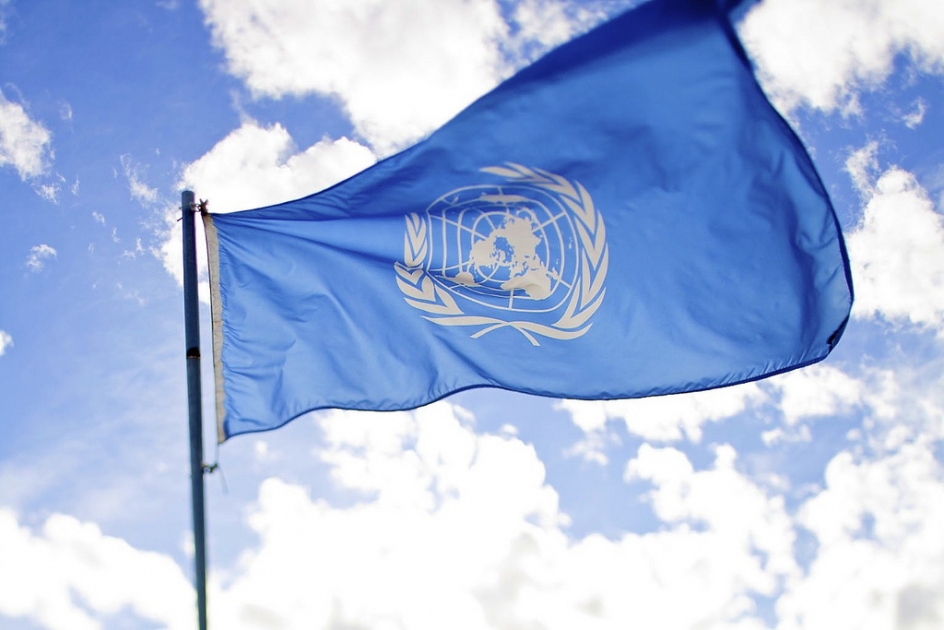Statement by Representative of the Russian Federation Andrei Belousov in the First Committee of the 74th session of the UNGA within thematic debate on "Other Disarmament Measures and International Security"
Distinguished Mr. Chairman,
Distinguished colleagues,
Last year a major step was made towards the creation of a peaceful, secure and equitable world order in the digital sphere.
First, at the initiative of the Russian Federation the United Nations General Assembly adopted by an overwhelming majority resolution 73/27 entitled "Developments in the field of information and telecommunications in the context of international security" with an initial list of rules of responsible behaviour of States in the information space. A total of 120 States voted in favour of its adoption. More than 30 countries have become its co-sponsors at their initiative.
This document contains the initial set of 13 rules, norms and principles of responsible behaviour of State in the digital sphere. Their purpose is to lay the foundation for the peaceful interaction among States and to ensure the prevention of wars, confrontation and any aggressive steps.
Second, in order to make the negotiation process on international information security (IIS) under the UN auspices truly democratic, inclusive and transparent, for the first time in history, through our resolution the General Assembly established an Open-ended Working Group (OEWG) on IIS, in which all UN Member States are invited to participate.
Unlike expert platforms, this group is a full-fledged body of the General Assembly, in which States, rather than experts in their personal capacity, are represented. Today it is the most democratic negotiation mechanism on IIS, which is open for all countries to participate. The interest of the international community to the work of this group is extremely high. Its two meetings were attended by the majority of the UN Member States. This is a very positive signal.
At the first substantive session of the OEWG in September this year the international community was almost unanimous in its support for the need to restore consensus on the IIS at the UN.
Russia fully supports such a policy. This is the basis of our position. We are always ready to look for a basis for consensus decisions.
To that end, we have submitted to the First Committee a concise updated draft of our annual resolution (traditionally entitled "Developments in the field of information and telecommunications in the context of international security"). The operative part of the draft resolution welcomes the continuation of the negotiating process on the IIS at the UN in the format of the OEWG and the Group of Governmental Experts (GGE) and underlines their focus on constructive and pragmatic work. The preamble, in turn, is based entirely on the language already agreed upon in previous IIS resolutions.
I would like to stress that now, when the negotiations on the IIS at the UN are in a decisive phase, when the agenda includes critical issues that directly affect international peace and security, the General Assembly needs a real consensus on this topic. Such a result can be achieved only on the basis of one common document, which is put forward in a peaceful, constructive and balanced spirit. Balance in this case is the key word. "Tug-of-war" between the OEWG and the GGE should be avoided, because we met here to come up with such a common formula that would serve as a beacon for the discussions on IIS in the coming years rather than find out which group is better and more important or promote our personal priorities.
Unfortunately, our attempts to come to an agreement, to elaborate a common document once again stumble upon intrigues. There is a view that each group needs its own resolution, and that is supposedly the consensus that everyone seeks. Such ideas are no more than an attempt to mislead the international community. It is an obvious tactic of division. We together with many other countries have invested a lot of efforts to come up with a balanced, coherent and to the highest extent possible unbiased text. It has already received positive feedback from almost everyone, and it is clear to all that this is the only sensible way to restore consensus. However, the United States and its allies continue to intrigue and try to bend the international community to its own interests.
We are called upon to reach a compromise - but what kind of compromise is that if it comes to the undiplomatic erosion of our proposed text? We are being asked to include in the draft a provision that distorts its peaceful and objectively impartial nature and, indeed, completely removes the main idea of constructive and non-confrontational interaction between the OEWG and the GGE.
Nevertheless, we do not close the doors and, as before, are open to compromise. Russia is ready to cooperate with its partners both in the West and in the East to adopt one common resolution.
Any other options would give the impression that we are unable to reach an agreement within the United Nations even on the most basic approaches to ensure international information security. The decisions that the General Assembly will take this year should not break up the negotiation process on IIS and force the countries to split up again. Such a situation will create by no means a favorable environment for the work of the OEWG and the GGE and will in fact throw our common efforts to develop mutually acceptable measures in the field of IIS many years back. We call upon the UN Member States interested in restoring consensus on IIS in the Organization to support our resolution and co-sponsor it.
Thank you for your attention.
